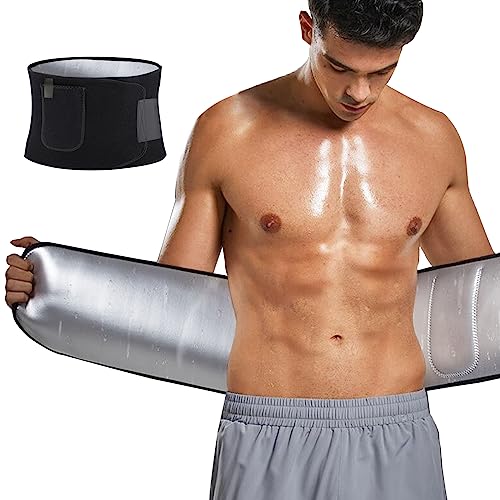A Deep Dive into the Top Bathtub Materials for Your Bathroom
Selecting the right bathtub material is crucial for a luxurious and long-lasting bathing experience. With numerous options available, each material offers unique benefits and drawbacks.
Whether you prioritize durability, aesthetics, or maintenance, finding the best bathtub material to suit your needs can be challenging. In this guide, we'll explore popular bathtub materials, provide answers to common questions, weigh pros and cons, and offer a comprehensive buying guide to assist you in making an informed decision.
Compare Products
- AI Score9.0
AI Score is a ranking system developed by PoolResearchs.com. PoolResearchs score has no relationship or impact from any manufacturers or sales agent websites. Learn more
- BrandYimobra
- Prime
- AI Score8.6
AI Score is a ranking system developed by PoolResearchs.com. PoolResearchs score has no relationship or impact from any manufacturers or sales agent websites. Learn more
- BrandSAFELAND
- Prime
- AI Score8.6
AI Score is a ranking system developed by PoolResearchs.com. PoolResearchs score has no relationship or impact from any manufacturers or sales agent websites. Learn more
- BrandSAFELAND
- Prime
- AI Score8.6
AI Score is a ranking system developed by PoolResearchs.com. PoolResearchs score has no relationship or impact from any manufacturers or sales agent websites. Learn more
- BrandSAFELAND
- Prime
- AI Score8.4
AI Score is a ranking system developed by PoolResearchs.com. PoolResearchs score has no relationship or impact from any manufacturers or sales agent websites. Learn more
- BrandRefinished Bath Solutions
- Prime
- AI Score8.2
AI Score is a ranking system developed by PoolResearchs.com. PoolResearchs score has no relationship or impact from any manufacturers or sales agent websites. Learn more
- BrandSENCOL
- Prime
- AI Score7.6
AI Score is a ranking system developed by PoolResearchs.com. PoolResearchs score has no relationship or impact from any manufacturers or sales agent websites. Learn more
- BrandSAFELAND
- Prime
Last update on 2023-08-26 / Affiliate links / Images, Product Titles, and Product Highlights from Amazon Product Advertising API
Pros:
- Cast Iron: Exceptional durability and heat retention.
- Acrylic: Versatile, lightweight, and easy to maintain.
- Fiberglass: Affordable, lightweight, and quick to install.
- Natural Stone: Luxurious aesthetics and unique patterns.
- Porcelain-Enameled Steel: Cost-effective, durable, and resistant to stains.
Cons:
- Cast Iron: Heavy, may require additional floor reinforcement.
- Acrylic: Prone to scratching and fading over time.
- Fiberglass: Not as durable; can develop cracks and scratches.
- Natural Stone: High maintenance, potential for staining.
- Porcelain-Enameled Steel: Susceptible to chipping and scratching.
1. Durability and Longevity:
Choosing a bathtub material with excellent durability is crucial for a long-lasting investment. Consider the material's resistance to impacts, scratches, and wear over time. Materials like cast iron and porcelain-enameled steel are known for their exceptional durability, while acrylic and fiberglass offer varying degrees of longevity. Keep in mind the expected lifespan of the material and how it will hold up to regular use.
2. Maintenance Requirements:
Different bathtub materials have varying maintenance needs. Evaluate how much time and effort you're willing to invest in cleaning and upkeep. Acrylic and fiberglass tubs generally require less maintenance and are easier to clean, while natural stone and porcelain-enameled steel might demand more careful attention. Consider the susceptibility to stains, chipping, and fading, and choose a material that aligns with your maintenance preferences.
3. Aesthetics and Style:
Your bathtub should seamlessly integrate into your bathroom's design theme. Look for a material that complements the overall aesthetics of your space. Acrylic and fiberglass offer a wide range of color options and designs, while natural stone provides a luxurious and unique appearance. The material's texture, color choices, and overall visual appeal should harmonize with your bathroom's décor.
4. Comfort and Insulation:
The bathtub material can affect the comfort and insulation of your bathing experience. Materials like cast iron and natural stone are excellent at retaining heat, providing a warm and relaxing soak. Acrylic and fiberglass are good insulators as well, but they might not retain heat as effectively as other materials. Consider how important heat retention is for your comfort and relaxation while bathing.
5. Budget and Cost:
Setting a clear budget is essential before exploring bathtub options. Different materials come with varying price points, and it's important to consider not only the upfront cost but also the installation expenses and potential long-term maintenance costs. Acrylic and fiberglass tend to be more budget-friendly, while materials like cast iron and natural stone can be higher-priced investments. Make sure your chosen material aligns with your financial constraints.
1. Which bathtub material is the most durable?
Cast iron and acrylic are known for their exceptional durability. Cast iron is heavy and robust, while acrylic is lightweight and resistant to chipping.
2. Are natural stone bathtubs a good choice?
Natural stone, like marble or granite, offers luxurious aesthetics but requires significant maintenance due to its porous nature and susceptibility to staining.
3. Is fiberglass a budget-friendly option?
Yes, fiberglass is affordable and lightweight. However, it may not be as durable as other materials and can develop cracks over time.
In the realm of bathtub materials, there's no one-size-fits-all solution. Your choice depends on your priorities—be it durability, aesthetics, maintenance, or budget. Cast iron and acrylic stand out for their longevity and versatility, while natural stone offers unparalleled luxury. Fiberglass and porcelain-enameled steel provide affordable options but come with certain limitations. By considering the pros and cons of each material and evaluating your preferences, you can confidently select the best bathtub material that aligns with your bathing needs.
















